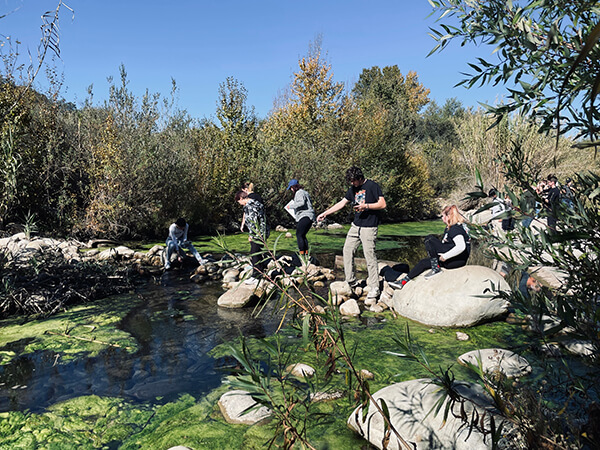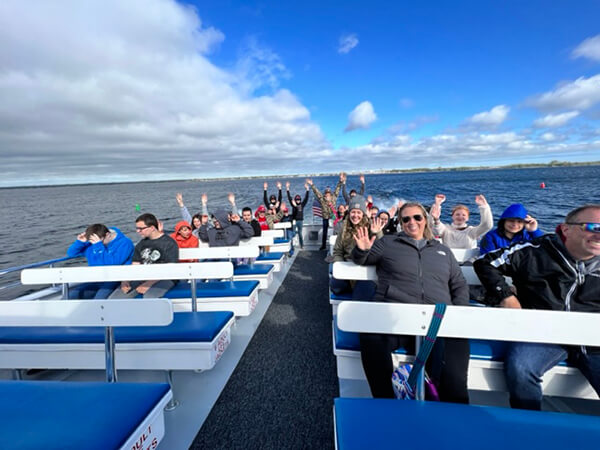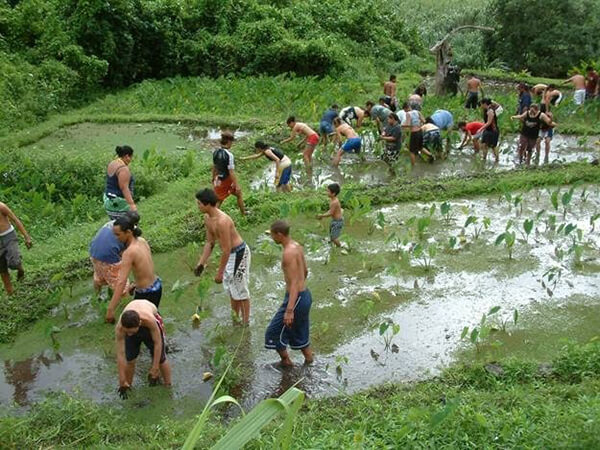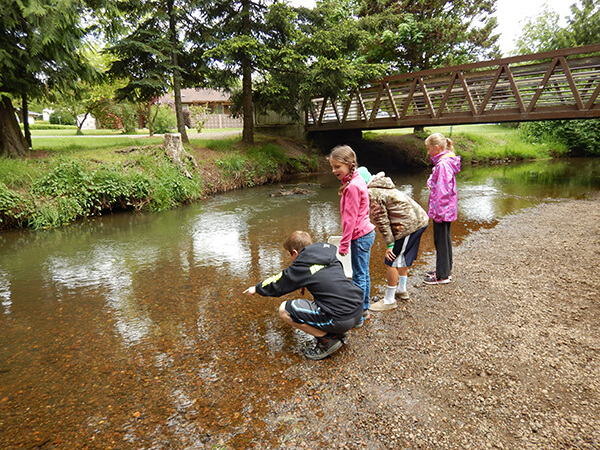Bay Watershed Education and Training (B-WET)
in the National Marine Sanctuary System
The NOAA Bay Watershed Education and Training (B-WET) national program is an environmental education program that promotes locally relevant, experiential learning in the K-12 environment through Meaningful Watershed Educational Experiences (MWEEs). B-WET was established in 2002 in the Chesapeake Bay watershed and currently exists in seven regions: California, Chesapeake, Hawaii, Gulf of Mexico, New England, Pacific Northwest, and Great Lakes. For more information about NOAA B-WET, visit the NOAA Office of Education’s B-WET national program website.
Four of the seven B-WET regions are coordinated by or in partnership with the NOAA Office of National Marine Sanctuaries. These four B-WET regions support national marine sanctuary communities by working with students and teachers to educate participants about issues impacting sanctuaries and highlight sanctuary resources. Since 2003, the four sanctuary managed B-WET regions have funded 564 awards totaling $53,206,045.
In FY23, B-WET programs in sanctuary communities:
- supported 22 institutions across 10 states
- reached 38,280 students
- reached 2,471 educators
The Office of National Marine Sanctuaries serves as the trustee for a network of underwater areas encompassing more than 600,000 square miles of marine and Great Lakes waters from Washington state to the Florida Keys, and from Lake Huron to American Samoa. The network includes a system of 14 national marine sanctuaries and Papahānaumokuākea and Rose Atoll marine national monuments.

California B-WET
The California B-WET program supports projects that advance the Next Generation Science Standards, the California Environmental Literacy Standards and Concepts, and the Ocean and Climate Literacy Essential Principles.

Great Lakes B-WET
The Great Lakes B-WET program funds existing environmental K-12 education programs, fosters the growth of new, innovative programs, and encourages capacity building and partnership development for environmental education programs. Funded projects support Great Lakes literacy and stewardship priorities of the Great Lakes Restoration Initiative./p>

Hawaii B-WET
The Hawaii B-WET program plays a foundational role as an environmental program that focuses on Priority Content Areas such as Indigenous Knowledge (IK) and science with an emphasis on climate. Individuals educated about earth’s processes and long-term environmental trends can become effective problem solvers, informed future community leaders, and engaged decision-makers tasked with managing Hawaii’s limited island resources.

Pacific Northwest B-WET
The Pacific Northwest B-WET program supports projects throughout the watersheds of Oregon and Washington that promote ocean and climate science, STEM (Science, Technology, Engineering, and Mathematics) education, Indigenous Knowledge, and community partnerships that lead with equity.
B-WET programs in Chesapeake Bay, Gulf of Mexico, and New England are managed through NOAA Fisheries. For more information about B-WET, please visit the NOAA Office of Education’s national B-WET program website.

